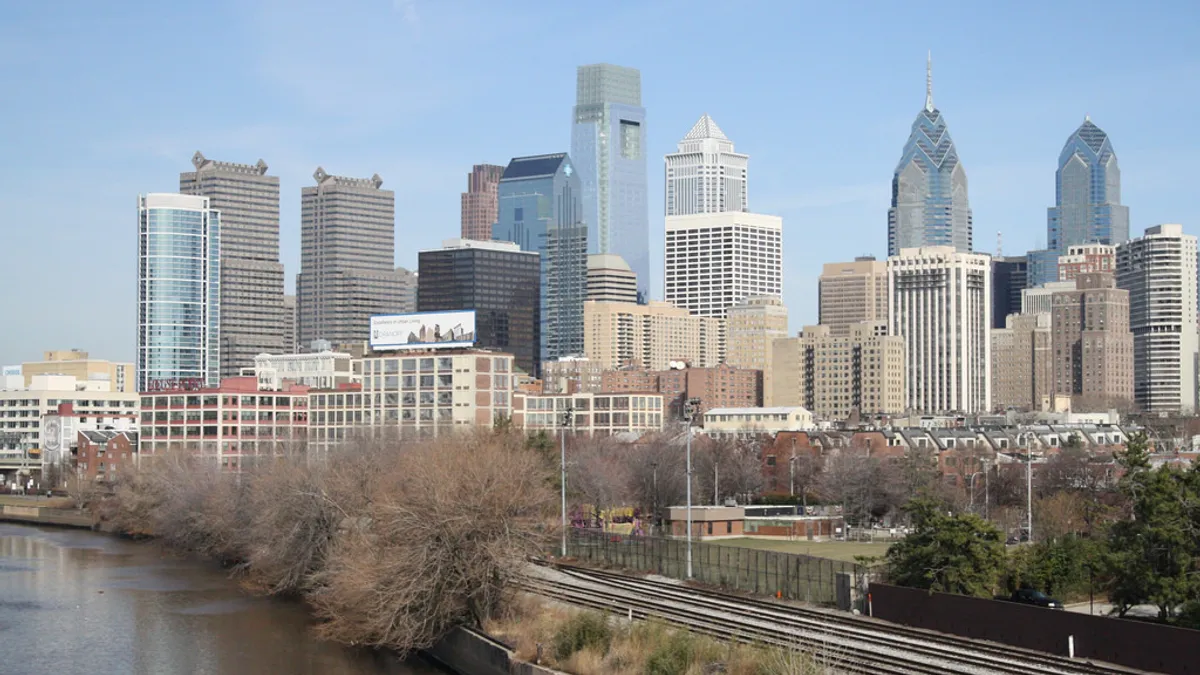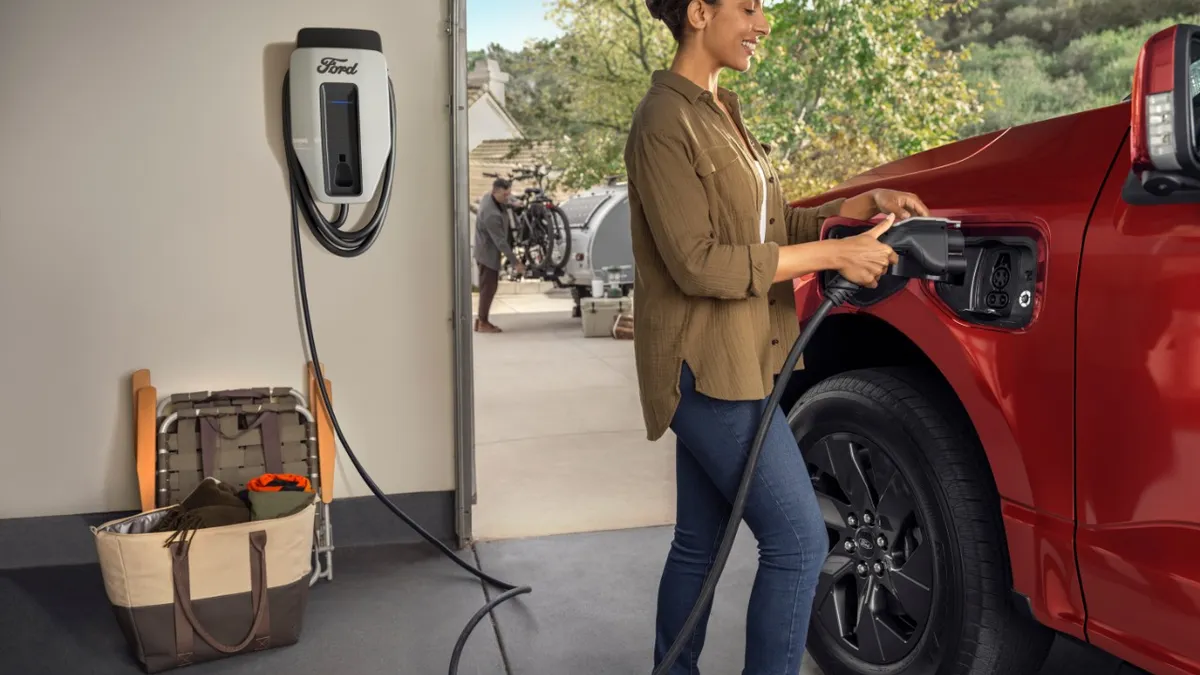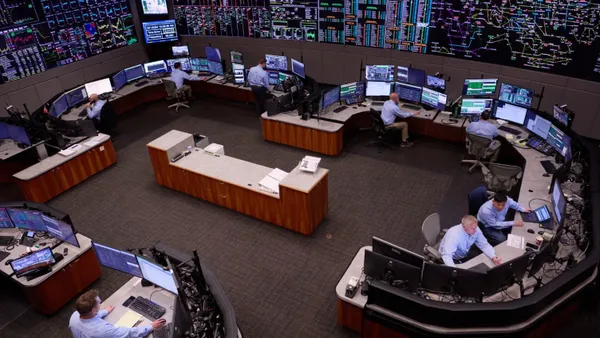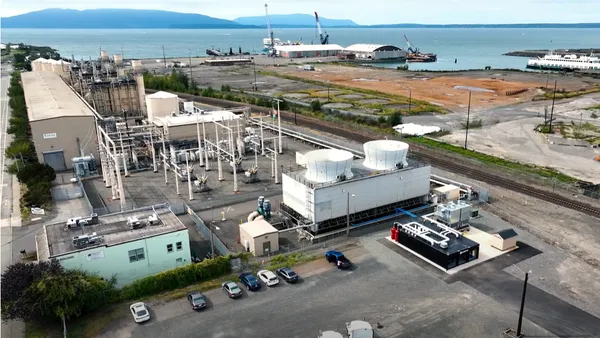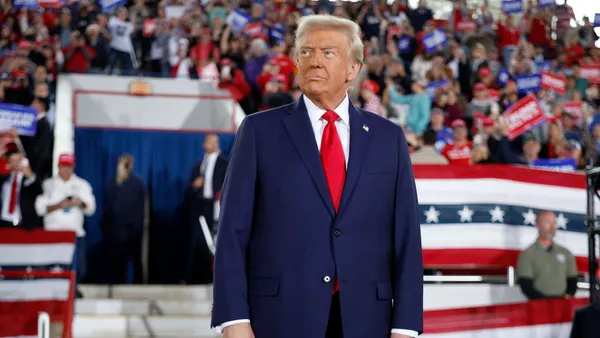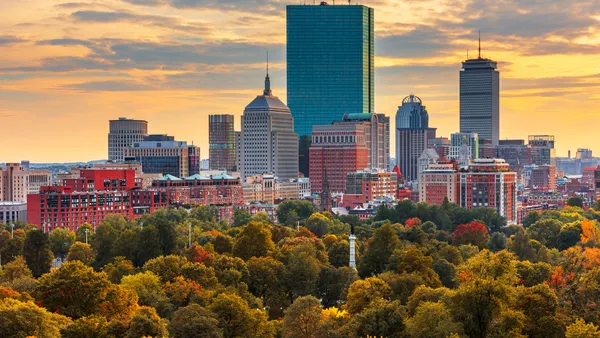Dive Brief:
- The City of Philadelphia has laid out a plan to reduce greenhouse gas (GHG) emissions 80% by 2050 and get 100% of its electricity from renewable sources by mid-century. The plan released this week builds on a draft released in November.
- Among the other steps Philadelphia plans to take are a citywide initiative to install more rooftop solar on commercial and residential buildings, and incentivizing more efficient thermal systems for buildings. Buildings contribute 79% of the city’s emissions, and the plan calls for an 80% reduction in building-related emissions.
- A municipal action plan targets emissions from 600 city-owned buildings, including an energy efficiency retrofit of the Philadelphia Museum of Art and installation of solar panels at a Philadelphia Water Department treatment plant.
Dive Insight:
With the federal government backing off climate change goals and downplaying clean energy in favor of fossil fuels, states and cities have taken the lead. The We Are Still In coalition has some 200 mayors vowing to keep up the goals of the Paris climate accord to collectively reduce U.S. emissions 26% below 2005 levels by 2025, with Philadelphia Mayor Jim Kenney a participant. Mayors have also launched the We Are Taking Action initiative to push local climate action, and have set ambitious emissions reduction goals (nearby Pittsburgh, for example, has a similar 80% GHG reduction goal by 2050).
Because they have control over issues like waste, transportation and especially building policy, cities are in a powerful position to drive a bottom-up approach to clean energy. St. Paul, MN, for example, is targeting building policy in its climate goals, promoting energy efficiency and promising to transition the grid to clean energy to make all private buildings carbon neutral by 2050. Purchasing power on the electric grid is a major lever cities have, one Philadelphia clearly intends to use.
Notably, Philadelphia’s roadmap also includes a section on advocacy, instructing citizens to "let your elected officials know a clean electricity grid is a priority.” Mayors have condemned the Trump administration’s rollback of the Clean Power Plan this week, and have tried to push for collective efforts on climate change. Individual efforts like Philadelphia’s can be effective, but federal policy will be necessary to ensure that the whole country is moving ahead on fighting climate change.


